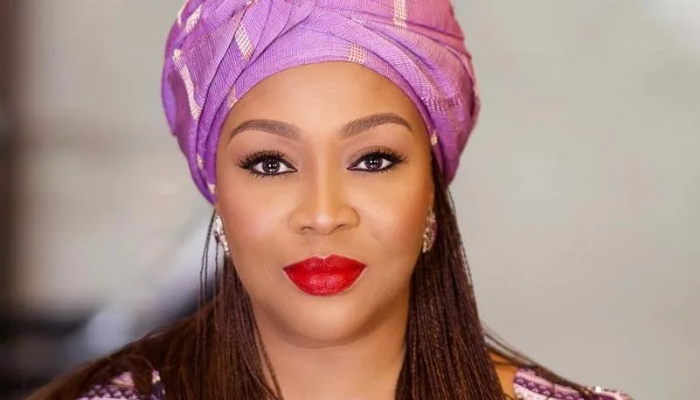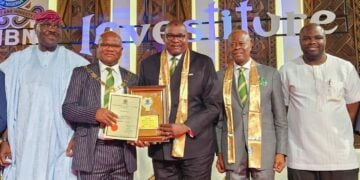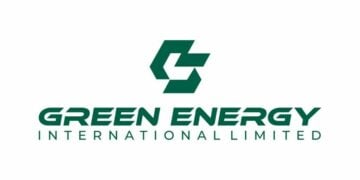For the first time since the administration of President Muhammadu Buhari’s administration, maritime stakeholders have had opportunity to meet with the minister of state Transportation, Gbemisola Saraki, to discuss the challenges and way forward for the sector.
The stakeholders and the minister, throughout last week, charted the way forward for the industry. The industry has been in distress for the past seven years due to abandonment by the immediate past minister.
However, the stakeholders expressed concern over lack of communication, disbursement of Cabotage Vessels Finance Fund (CVFF), Certificate of Competence (CoC) for seafarers, the dilapidated state of the Lagos seaports, especially Tin Can Island port, cargo dwell time, container deposit, automation, the electronic call up system, linking of the Lekki Deep Seaport to rail and investment in the port.
However, the minister, Sen. Gbemisola Saraki, however, promised to ill the wrongs and abandonment of the past, saying she will ensure CVFF is disbursed, Nigeria COC accepted all over the world, ensure increase in cargo dwell time and timely refund of container deposit by shipping companies to importers and clearing agents.
She said, “I came with the team from the ministry to take stock of where exactly maritime sector is because I was handling road transport. We already have stock of that and because am not handling maritime, we came to take stock of that including rail, we are taking stock. We need to take stock to now gather all the information to know where we are, we need to go back, sit down and see what needs to be done immediately, short term, medium and long term and the action plans of what we need to do and issues that we need to bring to the fore that need urgent attention like the state of the port.”
Quick Rehabilitation Of Tin Can Island Port
The minister has assured quick rehabilitation of the collapsing Tin Can Island Port, saying the government will fashion out critical and urgent move to rehabilitate the collapsing port.
She said, “Some of you went with us when we went to Apapa and Tin Can and that Tin Can is in a dire strait doesn’t mean that Apapa port is okay. Apapa isn’t okay as well. The two ports are in terrible needs of repair now, the hope and message is that we are taking stock, we will go back and fashion out what to implement in immediate, short, medium and long term and. We will map out the most critical and urgent that is the rehabilitation of the Apapa and Tin Can Island Port and it will happen without overly disrupting activities in those port.”
Disbursement Of Cabotage Fund
Saraki, also assured indigenous shipowners of disbursement, saying it was rather a shame that no indigenous Shipowner has been able to access the fund that was designed to enable them acquire vessels nearly 20 years after.
She, however, assured that the fund was still intact contrary to speculations in some quarters that it may have been misappropriated, which is suspected to be the primary reason for its non-disbursement after several years of selection, pre-qualification and shortlisting of eligible beneficiaries, none of which is yet to access the revolving loan facility several years after.
The Minister disclosed that the guidelines for the disbursement of the fund have been formulated and would soon be presented to the National Assembly for approval, which would immediately be followed by the actual disbursement of the funds to the already shortlisted beneficiaries.
On the allegation that the Federal Ministry of Finance at some point directed that the fund should not be disbursed, she noted that it was not about the Finance Ministry, it is rather more of securing approval of the guidelines for the disbursement from the National Assembly, which would be done in no distant time.
“It is really very disheartening that the fund has not been disbursed but we will work with the National Assembly to ensure its disbursement; just watch, it has to be disbursed, especially with the coming on stream of the African Continental Free Trade Area AfCFTA. In the course of this visit, I have also interacted with so many stakeholders including the indigenous ship owners. I know the number of vessels that Nigerians had 10 years ago and I know how many they have now.
“It is really a shame that this fund has not been disbursed, I learnt the value is $350million now and I am not sure any part of it is missing. We will work with the National Assembly to pass the guidelines. It is not really about the Federal Ministry of Finance but I think it is more of the political will to disburse it and I think we have the political will to do so”, the Minister also assured.
Refund Of Container Deposit Fee
The minister she would put processes in place to ensure that shipping companies promptly refund container deposits paid by importers and agents.
Speaking during an interactive meeting with maritime stakeholders including terminal operators, shipping companies, freight forwarders and others in Lagos, Saraki frowned at the high cost of doing business at the nation’s seaports, vowing to reverse the trend.
She said she would work with other stakeholders to reduce cargo dwell time at the port.
The minister assured the stakeholders of sustained communication and engagement of stakeholders to make the ports more productive.
“The maritime industry is a major engine room in our national economy and as such, we must ensure that infrastructure is adequate and that there’s synergy across the industry while providing access to all our stakeholders.
“And communication is the first step to solving any business problem. So, we are here to talk with our stakeholders.
“This town hall meeting will hopefully bridge any communication gap and drive the sector to a greater height.
“The enterprise architecture we plan on implementing will ensure that the communication is dynamic and not stagnant and integrate into the ministry’s plan. At Federal Ministry of Transportation, we value all our stakeholders as partners in governance and business,” Saraki said.
Repositioning Of NSDP
The Minister also called for repositioning of the National Seafarers’ Development Programme (NSDP), to make significant contributions to the nation’s foreign exchange just as is seen in a place like the Philippines.
Her words: “With reference to seafarers, let us think, how did the Philippines do it? Seafarer supply is their greatest foreign –exchange earner, their human capital.
“If you look at our Seafarer Development Programme, it has been going on for a decade. We need to look at it; what has changed? We need to ask “is it achieving what we intended it to achieve?”
She said it was discouraging to see how indigenous shipping companies have gone under, just as seafarers have over time faced difficulties of getting seatime.
The Minister expressed satisfaction over the relationship of the Ministry and the Nigerian Navy and their synergy in areas including dredging, wreck removal and maritime security.
Stakeholders Applaud Saraki’s Repositioning Move
Speaking, the former president, National Association of Government Approved Freight Forwarders (NAGAFF), Eugene Nweke, said the appointment of saraki was ‘a breath of fresh air’ and movement from old order.
According to him, the Minister’s approach was an administrative redirections and reassurances and a kind of positive migration from old order of addressing industry concerns with uncouth political sagacity of no truthfulness.
He said, “Listening to her speeches and responses to industry questions as posited, I noticed two key commendable leadership attributes. One, she spoke as someone who is conversant with the happenings in the industry, as such communicates freely the industry language with greater emphasis.
Two, she spoke as someone with both administrative focus and listening capacity.”
Also, the Founding President, Nigerian Shipowners Association (NISA), Chief Isaac Jolapamo, said Saraki has “deep knowledge of the industry” and “knows what to do” to reposition the transport sector.
“She is not a green horn. She knows what to do. If indeed government wants to develop the maritime industry, government knows and understands that she has the wherewithal and the experience.
“Having come from the lawmaking side of the maritime industry to the executive side, she can do it better unlike what we experienced in the past,” Chief Jolapamo said.
Also speaking, the President, Shipowners Association of Nigeria (SOAN), Dr. Mkgeorge Onyung, said the Minister’s visit to the ports and weeklong engagement with stakeholders “is a paradigm shift” that will accelerate development of the transport sector.
He said, “This is something which almost everybody has been looking for. The maritime industry is a very vast industry. The ocean economy is much, so also the challenges associated with it.
“For you to be able to come to a Ministry like this, you must have a very broad overview to be able to attend to the issue. I think she has all what it takes.”
The President, Nigerian Association of Master Mariners (NAMM), Captain Tajudeen Alao, also noted that the Minister “has done wonderfully well” since she took charge of the transportation ministry on May 16.
“To be sincere with you, the Minister has done wonderfully well because going on the water, coming by rail to Apapa, physically seeing the situation on ground, speaks volume more than anything anybody can explain.
“This woman has been very thorough and detailed in addressing all the issues. She knows her onions and she is on the top of the situation. She understands everything discussed in the meeting.
Taking one week off her schedule to come and meet the stakeholders; this is what we have been advocating for long.
It is our wish that she is made the substantive Minister of Transportation.
“As you can see, no protocol, no funfair.
She is meeting us and solutions are being proffered in this hall. What else do we want? People are even sending texts to her phone directly and she has been responding,” Alao noted.





